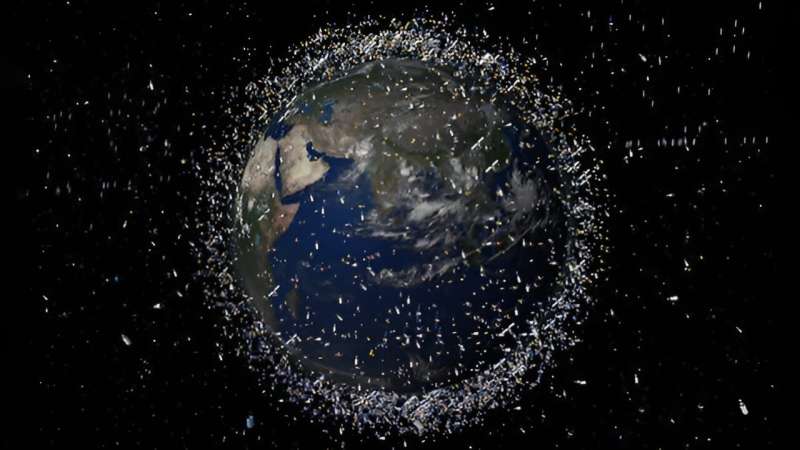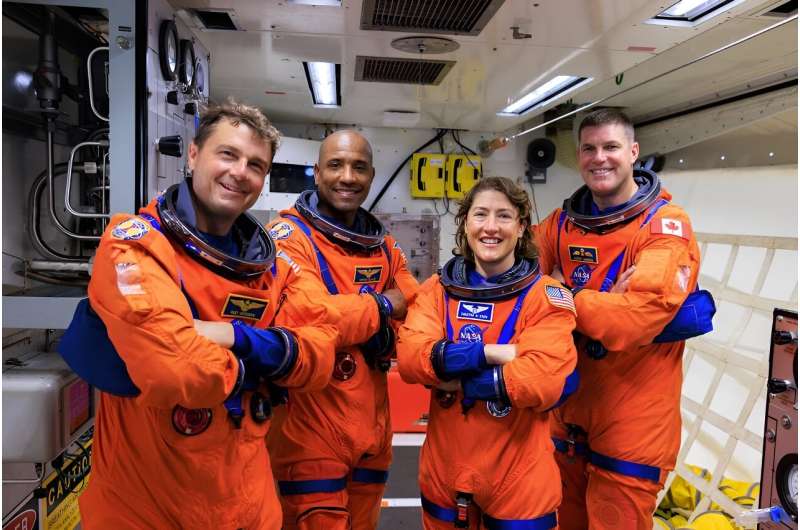This disdainful attitude toward space research is actually quite common.
Space exploration is currently booming. Just think of the Artemis missions, SpaceX's ambitious plans for Mars, the deployment of the James Webb telescope or the recent "race to the moon."
A number of large-scale projects are getting the green light now, mainly from NASA, including the Artemis II mission that will carry four astronauts to the moon, which will have Canadian astronaut Jeremy Hansen aboard. This will be a first since 1972. Incredibly, it's been 50 years since the last human mission to Earth's natural satellite.
Although many people find space exploration inspiring, others are skeptical and even angered by what they see as an unjustifiable waste of resources and money on an activity that only spreads pollution to another place. This sums up the feelings of my friend Max.
In this article, I will try to prove him wrong.
Humans are explorers first
My great curiosity has led me to travel to extreme places so I can study them. But I am not the only one with this desire to explore.
In my Grade 9 history class, my teacher stood on top of her desk and, with a grave and serious tone, went on to act out Jacques Cartier's arrival in North America in her own, colorful style. A few years earlier, I had learned about how the first humans left their caves to climb mountains. One hundred and thirty years ago, humans sailed further and further south until they saw the glacial landscapes of Antarctica for the first time. At the same time, humans were attempting to dominate the skies and aiming for the beyond with planes and rockets—which is how we got to the moon.
What is the common denominator in our history? Exploration, of course.
Human nature is characterized by a propensity to travel, to look further and to discover. We are all curious by nature. If we stop wanting to explore, we stop being human.
The Earth has rings
So, my friend Max, let me invite you outside. It's a beautiful, starry night with no moon. It's a bit cold, but at least the atmosphere isn't too humid, which makes the sky more transparent. We can see stars flickering. Some are blue, others are red. And the more our eyes adapt, the more the sky reveals its secrets.
Suddenly, something else stands out. It's another light, but it's not flashing, and it's moving quite quickly. A shooting star? No, the atmosphere would have burned it up in a few seconds.
It's a satellite, one of thousands that orbit the Earth like rings. These satellites are a direct consequence of space exploration. We would be living in a completely different world without them.

Indeed, not an hour goes by in our lives when we don't use a satellite.
On the one hand, you would likely have gotten lost on your way here, Max, because there would have been no GPS to show you which exit to take. And secondly, I wouldn't have been able to help you find your way because there would be no wifi. We can push our thinking even further; agriculture, environmental monitoring, communications, the weather, even banks, all of these depend on satellites.
But how does this work? You have to understand that these satellites move so quickly they actually circle the Earth several times a day. Combined with a very large workforce, they provide a complete view of the globe. From the middle of the oceans to the highest mountains and the almost inaccessible poles, we have eyes everywhere. By drawing on this vast quantity of observations, we obtain data on changes to the earth's surface, the spread of forest fires, the movement of winds, the melting of ice and many other things, while enabling global communication and credit card transactions.
Space exploration was the trigger that enabled us to develop and operate these technologies. And it doesn't stop there.
Two birds, one stone
The practice of medicine in remote areas also benefits from space exploration. It's not easy for communities in remote areas to access health care, especially since hospitals don't always have the sophisticated equipment they need.
If you think about it, when astronauts explore space, they become a small population in a very, very remote region. It's true. What happens if someone has a really bad stomach ache? Or breaks an arm? They don't have time to come back home for treatment, so we have to react, and quickly.
Scientific research in telemedicine has developed to address this important issue, producing a number of innovative technologies. And if these are useful for astronauts, why not use them for rural populations, too?
A few years ago, three Québec researchers from different universities were working on a tiny probe that could rapidly analyze and diagnose a blood sample.
Although some prototypes are not yet on the market, others are already in widespread use, such as the ultrasound scanner designed by NASA. This scanner takes precise photos of organs and bones that can be transmitted to a doctor, who will then have crucial information on hand to recommend treatments.
In a way, space exploration provides us with opportunities to respond to urgent needs on Earth. So, Max, are you beginning to see the need for it?
Another perspective
Finally, I have to admit that I find it rather encouraging to see Russians, Americans, Japanese, Canadians and Europeans living together on the Space Station. Not so long ago, some of these countries were attacking each other with nuclear bombs. In space, no such borders exist.
Exploration brings people together. It opens our eyes to new perspectives. It shows us that we're all in the same boat together. That's pretty important, don't you think, Max?
Our planet is magnificent and unique, an oasis of impossible life. But it is fragile. We need to protect it. That's why exploring beyond the Earth should not be considered a luxury; it's an investment in our shared humanity.
So, Max, when Jeremy Hansen and his crew take off in 2025, will you be there to watch them?
Provided by The Conversation
This article is republished from The Conversation under a Creative Commons license. Read the original article.![]()



